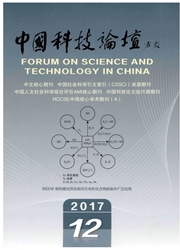

 中文摘要:
中文摘要:
文章基于合作与竞争理论,旨在建立“目标-互动-结果”理论模型,探讨企业与下游厂商的目标竞合对企业核心能力产生影响的路径机制,并明确外部技术环境的调节作用。通过对来自国内233家企业数据进行结构方程建模,研究发现:企业与下游厂商的合作目标通过促进下游整合加强探索式创新和利用式创新,进而提高企业核心能力;企业与下游厂商的竞争目标通过阻碍下游整合对探索式创新和利用式创新产生消极影响,进而减弱核心能力;技术环境动态性加强探索式创新对核心能力的积极影响,削弱利用式创新对核心能力的正向作用。
 英文摘要:
英文摘要:
This paper develops a model, based on the theory of cooperation and competition, to clarify the downstream relationships and interactions that contribute to company core competence. Results of SEM analysis from 233 firms support our argument completely. Results show : Downstream integration is reinforced by cooperative goals rather than competitive goals ; And then this type of integration has a significantly positive impact on the exploratory innovation and exploitative innovation of firms; These relationships in turn contributes to core competence. Technological turbulence significantly moderates the relationship between exploratory innovation and core competence positively. And it plays a negative moderator role on the relationship between exploitative innovation and core competence significantly.
 同期刊论文项目
同期刊论文项目
 同项目期刊论文
同项目期刊论文
 期刊信息
期刊信息
